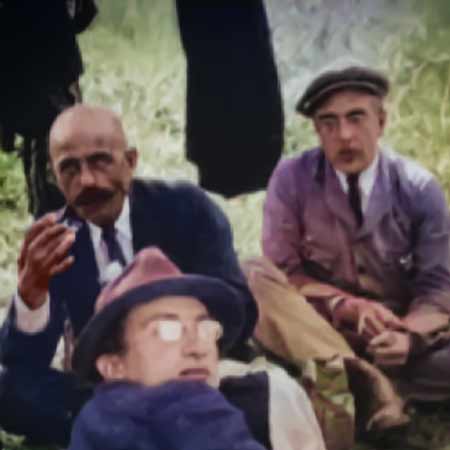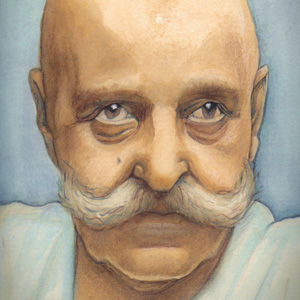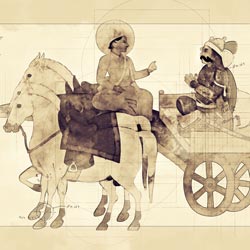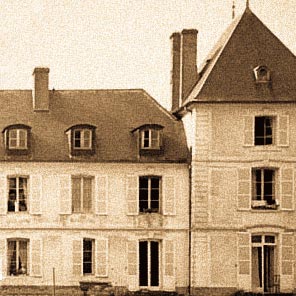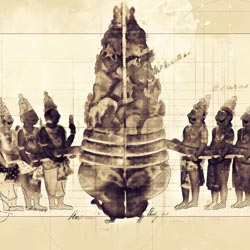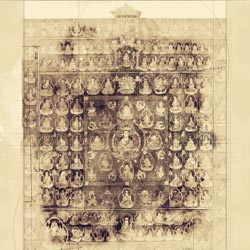
Question: I am finishing the reading of Ouspensky’s In Search of the Miraculous and am quite intrigued to know why did Ouspensky leave Gurdjieff. Why did he decide to distance himself at some point and work separately? The book is not clear about it; I sense that Ouspensky protects Gurdjieff by saying the minimum. Could you tell me what happened or direct me to some other sources on the topic?
Ouspensky indeed speaks minimally about why he decided to leave Gurdjieff. In the context of the book In Search of the Miraculous, I suspect it has to do with his aim in writing the book. If he digressed into criticism about Gurdjieff’s methods, or a long apology for why he decided to leave him, it would taint the entire book with the spirit of gossip and intrigue, and detract from the objectivity of the knowledge presented.
However, Ouspensky’s reluctance to speak about why he left Gurdjieff extended beyond his books. We are told that, at some point, he got tired of being asked about Gurdjieff and gave his students a task not to mention him. I suspect it might have been impossible for him to explain exactly what happened. He implies this in In Search of the Miraculous. Language has limitations. An experience put into words cannot capture the time and place in which it occurred. We, who were not there, fill in the blanks with our own imagination and corrupt the original event. In the spirit of remaining objective, it is often more prudent not to speak at all than to open the door to distortion.
What Ouspensky does tell us in In Search of the Miraculous is that the rift was gradual. In the summer of 1916, a year after Ouspensky met Gurdjieff, Gurdjieff took eight of his students to a country house in Finland for more concentrated work. This was a pivotal period for Ouspensky that deepened his understanding of the work and left him very hopeful that he might accomplish real inner change with Gurdjieff’s help. After this gathering, he wrote:
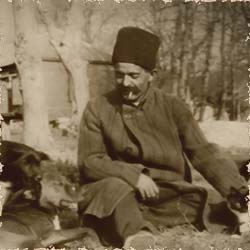
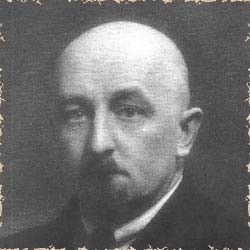
[OUSPENSKY] “At this time certain very definite changes began in my views on myself, on those around me, and particularly on “methods of action” …they were not in any way connected with what was said in Finland but they had come as a result of the emotions which I had experienced there… Somewhere very deep down inside me I understood the esoteric principle of the impossibility of violence, that is, the uselessness of violent means to attain no matter what.” i
About a year later, in 1917, Gurdjieff gathered 13 of his students for six weeks at Essentuki, at the base of the Caucasus mountains in Russia. Again, Ouspensky singled out the knowledge and methods shared during this gathering as deeply significant. “We were given some general propositions by which I thought we could be guided later on,” he said. Surprisingly, however, the Essentuki gathering came to an abrupt and sour ending:
[OUSPENSKY] “And suddenly everything changed. For a reason that seemed to me to be accidental and which was the result of friction between certain members of our small group, Gurdjieff announced that he was dispersing the whole group and stopping all work.” i
Needless to say, this incident was a big blow to everyone involved. It is impossible for us, who were not there, to comprehend the extent of the disappointment in seeing one’s investment in a teacher come to nothing, and for seemingly trifling reasons. We learn a little more about the circumstances behind this abrupt ending from the De Hartmanns, who are the only others present in Essentuki to later recount it in their memoir:
[THOMAS DE HARTMANN] “[Gurdjieff] had been trying Petrov (another student attending, not Peter Ouspensky) almost beyond endurance. At last Petrov could not hold out any longer. He forgot himself and answered Mr Gurdjieff angrily. Mr Gurdjieff turned and left the house, and an hour later it was announced that all further work was to stop for everyone because one of the senior pupils had manifested himself in this way towards his teacher.” ii
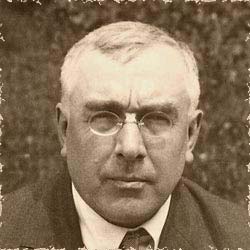
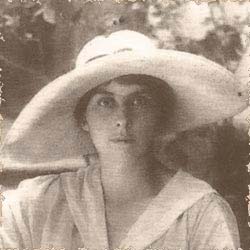
[OUSPENSKY] “All this surprised me very much. I considered the moment most inappropriate for “acting,” and if what Gurdjieff said was serious, then why had the whole business been started? During this period nothing new had appeared in us. And if Gurdjieff had started work with us such as we were, then why was he stopping it now?” i
The natural disappointment in realizing Gurdjieff was dispersing the whole group and stopping all work—coupled with Ouspensky’s earlier realization of the uselessness of using violence—give good grounds for understanding why a rift would form.
[OUSPENSKY] “And I have to confess that my confidence in Gurdjieff began to waver from this moment. What the matter was and what particularly provoked me is difficult for me to define even now. But the fact is that from this moment there began to take place in me a separation between Gurdjieff himself and his ideas. Until then I had not separated them.” i
The crack widened as events continued unfolding. Eventually, Ouspensky decided to break all contact with Gurdjieff and continue working independently. Many have subsequently tried to explain this rift without having been there. They reduced the complexity of the conflict—which Ouspensky himself admitted was difficult for him to define—into a black-and-white verdict that vindicated one side and condemned the other. Some ruled in favor of Gurdjieff, attributing his actions to his unique and inspired methods, and claiming that Ouspensky, in his intellectual blindness, missed the very lesson Gurdjieff intended to relay. Others ruled in favor of Ouspensky, taking such events as the sudden disbandment of the Essentuki group as proof that Gurdjieff was moody, violent, and manipulative, and that his students could not continue to acquiesce to his methods. Not having been there, we see what we want to see; we fill in the missing blanks to suit our own imaginary picture.
Be that as it may, to discard Gurdjieff and Ouspensky’s legacies because of their disagreements would be to throw out the baby with the bathwater. We are forced onto Ouspensky’s same conclusion: we must separate the message from its messengers. Gurdjieff himself always stressed that his teaching was rooted in ancient traditions. Part II of Seeker of Truth attempts to show that many of these are still widely available: Christianity, Buddhism, Judaism, etc. Gurdjieff’s unique contribution was twofold: he presented their original meaning in a fresh and accessible way, and offered practical tools for verifying that meaning. Once we verify an idea, we disconnect it from its messenger and make it our own.
.
Question: Has it ever crossed your mind to regret having ever met Gurdjieff?
Ouspensky: Never. Why? I got very much from him. I am always very grateful to myself that after the first evening I asked him when I could see him next time. If I had not, we would not be sitting here now.
Question: But you wrote two very brilliant books.
Ouspensky: They were only books. I wanted more. I wanted something for myself.iii


.
Frequently Asked Questions
What were the main stated reasons for Ouspensky's separation from Gurdjieff?
– He believed Gurdjieff began violating the very principles he originally taught, such as:
“Don’t believe anything you haven’t verified yourself.”
“Don’t do anything you don’t understand.”
– “Gurdjieff demanded from people to accept what they did not believe and to do what they did not understand.” — Ouspensky
– He became uneasy with what he saw as Gurdjieff’s increasing authoritarianism and mystical theatricality—demanding obedience or creating strange rituals without explanation.
– The sudden disbanding of the Essentuki group in 1917 also shook Ouspensky’s trust— he felt the work had been prematurely cut short without cause.
These tensions led Ouspensky to start distinguishing the “ideas” of the system from the man presenting them.
When did Ouspensky formally break with Gurdjieff?
– Gurdjieff’s near-fatal car crash in France.
– Ouspensky had already been leading his own group in London independently. He then issued a clear directive to his students:
“You must choose. Either go and work with Gurdjieff, or stay with me—but if you stay, you must not communicate in any way with him.” — Ouspensky
He no longer saw himself as Gurdjieff’s student, nor Gurdjieff as his teacher. From that point forward, their work diverged entirely.
Did Ouspensky disagree with Gurdjieff’s core teachings or just his methods?
– His disagreement was with Gurdjieff’s later methods, which Ouspensky saw as becoming:
Coercive or manipulative (e.g., forcing people into uncomfortable roles).
Overly mystical and opaque (introducing ideas or practices without explanation).
At odds with rational, verifiable inner work.
So, he preserved and systematized the early teachings, but refused to follow Gurdjieff’s evolving experimental style.
How did Ouspensky continue teaching the Fourth Way after leaving Gurdjieff?
– He attracted hundreds of students, teaching through:
Lectures
Q&A sessions
Private groups and self-observation experiments
– He compiled and refined his material into key books:
In Search of the Miraculous
The Psychology of Man’s Possible Evolution
A New Model of the Universe
– Notably, in the last years of his life (1946–47), he rejected the “system” as a fixed form, saying: “There is no system. You must begin again. You must reconstruct everything for yourselves from the beginning.” — Ouspensky
This was a radical gesture of freedom, asking his students to go beyond dependency and rediscover the essence for themselves.
What impact did the Ouspensky-Gurdjieff split have on the development of the Fourth Way?
– Gurdjieff’s line was more experiential, intuitive, and symbolic | Ouspensky’s rational, structured, and philosophical.
– Gurdjieff employed dances, music, and sacred ritual | Ouspensky focused on psychological work and lectures.
– Gurdjieff emphasized transformation through shock and paradox | Ouspensky emphasized understanding and verification.
– Gurdjieff’s legacy was managed by Jeanne de Salzmann | Ouspensky’s continued through Rodney Collin, Maurice Nocill, and others.
This diversification ultimately helped the Fourth Way reach more people, though it also created diƯerences in tone, formality, and emphasis among various groups.
Sources
- In Search of the Miraculous by Peter Demianovich Ouspensky
- Our Life with Mr. Gurdjieff by Thomas and Olga de Hartmann
- Ouspensky’s Meeting Transcripts from the Yale Library

In 2022/24, the School of the Old New Method created a full-length documentary on George Gurdjieff.
